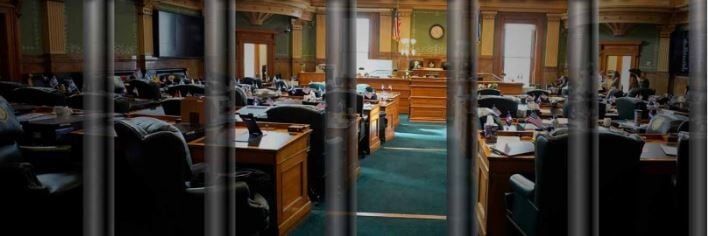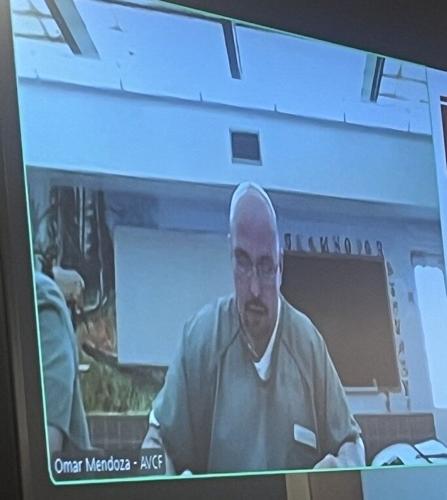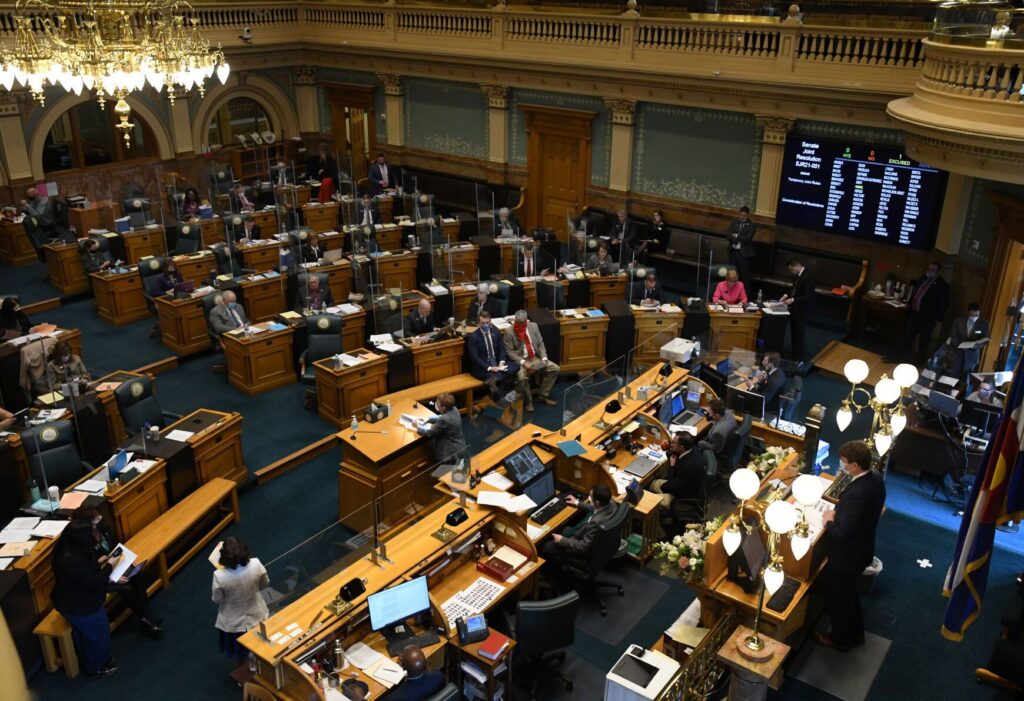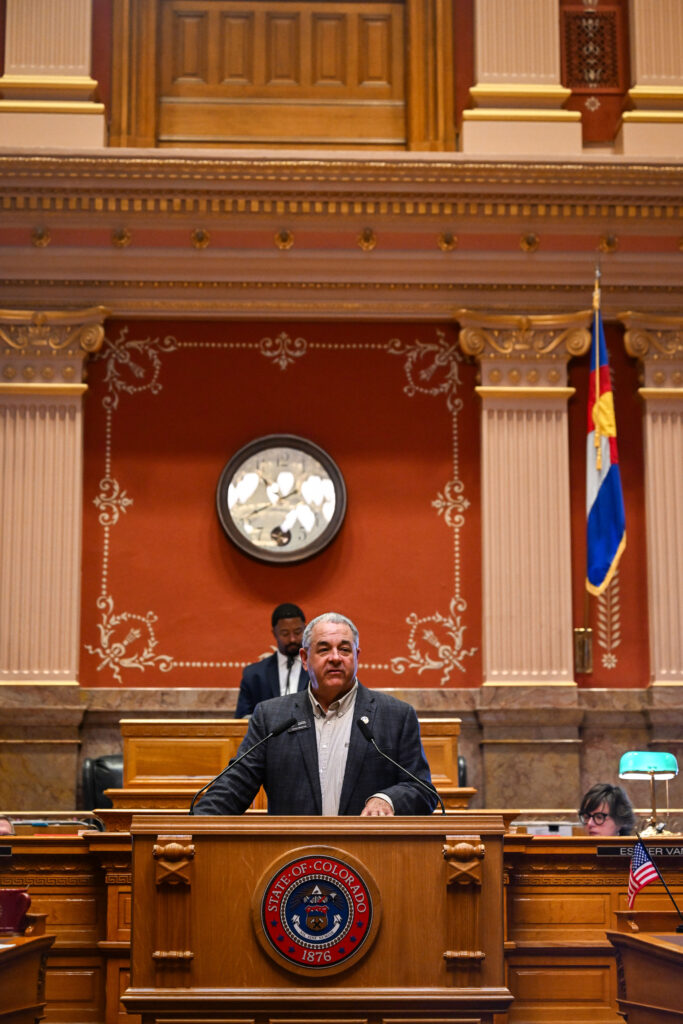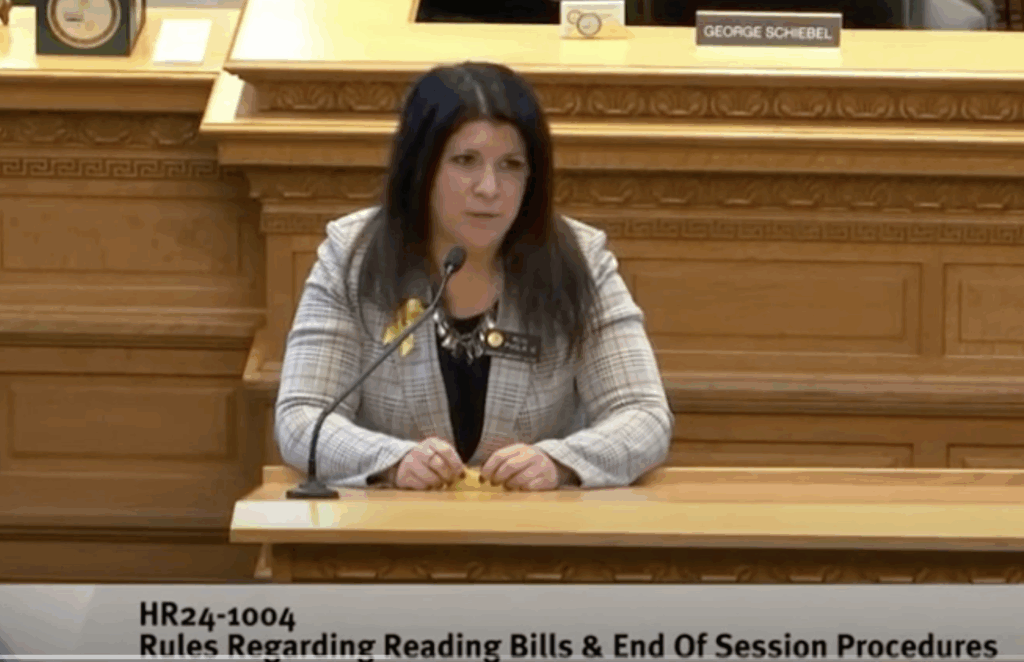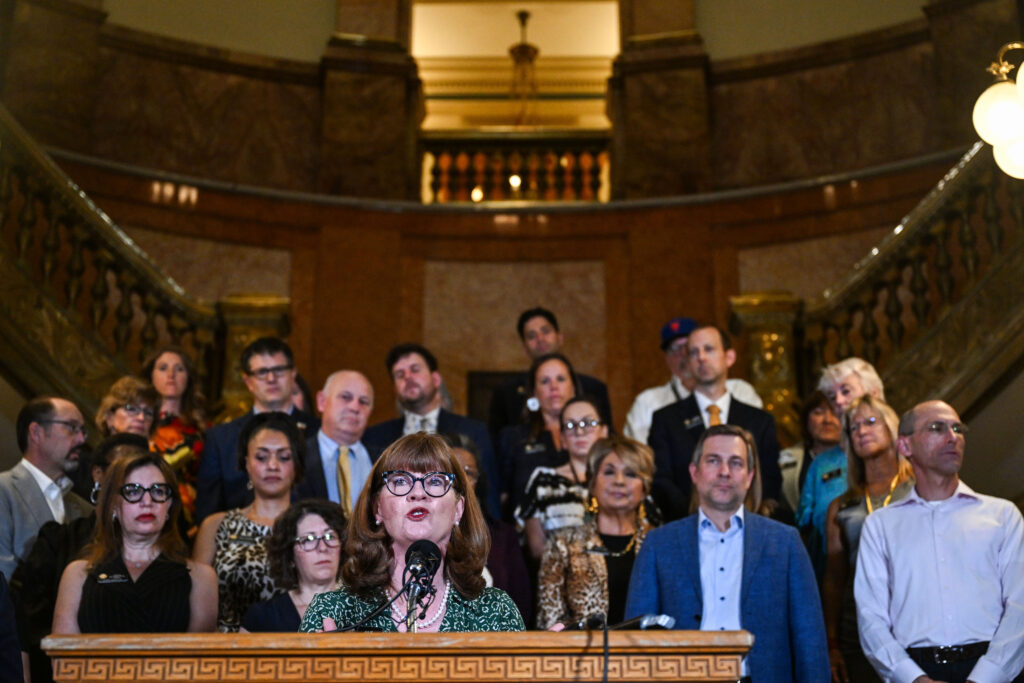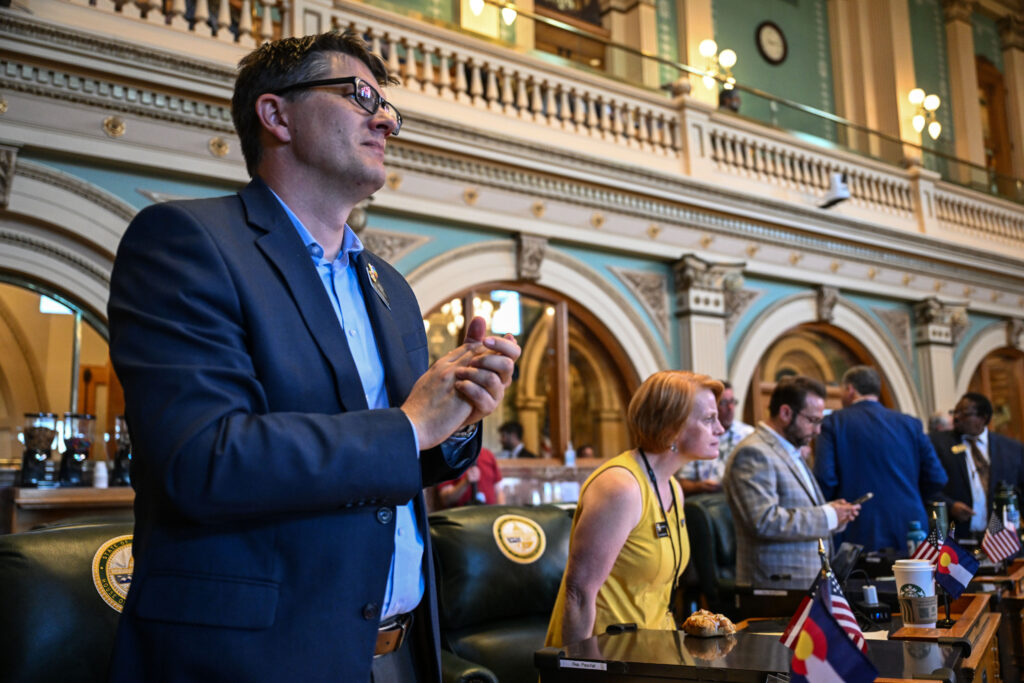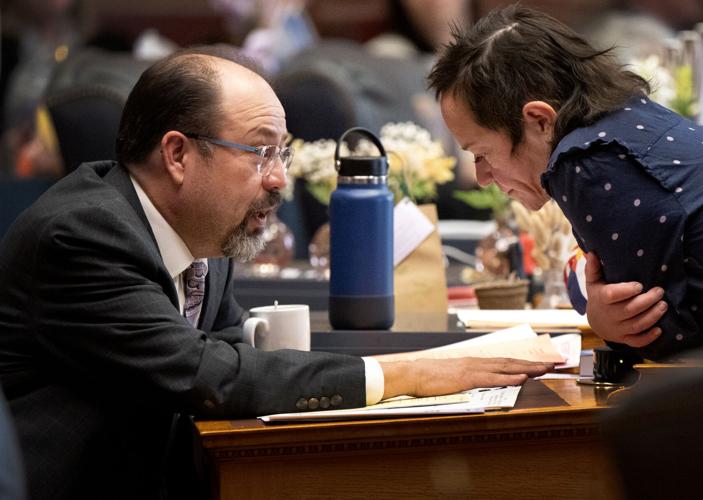Legislation Inside: Colorado prisoners seek to change laws from within
David Carrillo served 30 years in prison for first-degree murder.
He spent many years angry with the “system” after his conviction in 1993, he said. While his brother was the one who pulled the trigger in the Pueblo County shooting that day, it was him who received the life sentence, he said.
Carrillo made the most of his time in prison, earning three degrees. He become a professor —among the first imprisoned professors to teach other student inmates.
He said he owes a lot of his success to a little-known program called “Legislation Inside” that provides inmates the opportunity to learn about the legislative process, lobby for bills, and even draft their own measures.
Carrillo said the program helped temper his anger and taught him the ins and outs of the criminal justice system.
“It provided me a voice in the process, which helped me continue to grow and learn about the process of a system I once felt disenfranchised from,” he said.
‘A part of as opposed to apart from’
Jamie Ray, a legal fellow at the University of Colorado’s Korey Wise Innocence Project, started Legislation Inside with the project’s staff attorney, Jeanne Segil, in 2021. She had managed a similar program at the Second Chance Center for former prisoners.
The Innocence Project took the program under its wing in 2023. Over the past four years, Legislation Inside has expanded to 13 Colorado jail facilities with about 35 peer-elected inmate “representatives.”
Representatives meet once a week over Zoom to discuss criminal justice legislation, hear from guest speakers, and brainstorm ideas for bills.
Some facilities also hold weekly town halls, in which the representatives inform their peers about the work they’ve been doing and any matters happening at the Capitol that may affect them.
“It makes them feel a part of as opposed to apart from, especially when issues are directly impacting their lives,” said Ray. “I think, as individuals, especially in legal policy, we forget that there’s a lot of highly intelligent, thoughtful, articulate individuals that are incarcerated, and I think they often feel that they have so much more to offer than they’re given the opportunity to give.”
Ray added: “This program, I think, has really given them that platform and opportunity.”
The program also helps kill the rumor mill, Ray said, because DOC staffers can speak directly with inmates and quash or verify any rumors that have been floating around the facility.
Feedback from both participants and facility staff has been overwhelmingly positive, despite initial skepticism, Ray said.
While there were worries about inmates using the program as an opportunity to complain and commiserate, that didn’t materalize, she said.
“We’re not here to complain,” said Ray. “We’re here to solve problems, and I think that’s one thing that staff has seen, too. It’s not that we get on the call and they just complain about staff all day. We get on the call and it’s a lot of figuring out what the issues are and how we all fix them together, and I think the reception of that across the board has been really good.”
Bills written by inmates
In 2023, following months of brainstorming, research, and lobbying, Legislation Inside participants drafted their first bill, House Bill 1214.
The bill would have provided consistency and transparency around the application process for sentence commutations. According to Ray, inmates said the process is extremely confusing and inconsistent.
The bill passed through both the House and the Senate before being vetoed by Gov. Polis due to concerns about its constitutionality.
While the Legislation Inside team was disappointed by the outcome, Ray said the participants weren’t discouraged. If anything, they were emboldened, Ray said, as the opportunity showed them that their voices mattered and they had the chance to push for changes that could impact tens of thousands of inmates across the state.
This year, the participants are running another bill, this time to create the Legislation Inside Advisory Council, which would be charged with identifying, examining, and discussing the “issues, interests, and needs” of Colorado prisoners.
The advisory council, which would include two senators, two representatives, and 40 inmate participants, would meet virtually at least three times a month to develop rules and procedures for the program, such as term limits and removal procedures.
Ray admitted she hasn’t imposed many rules or procedures for the program because she didn’t expect it to last as long as it has.
“I never expected LI to get to this point,” she said. “I thought we would be in five facilities and it would be cool for a couple of years and then DOC would shut us down like a lot of other programming. That’s just kind of what happens in DOC.”
Now that it’s clear the program is a success, Ray and Segil want to make sure it doesn’t go anywhere.
“Ever since I started this program, I was racking my brain on how we can get it so it can’t just be erased,” said Ray. “As much as I really respect this current administration and how great they’ve been with us, it’s a current administration, so one of the things that’s always been in the back of my head is you just never know what’s going to happen next.”
Sen. Julie Gonzales, D-Denver, came to Ray with the idea of creating an advisory council similar to the one the state implemented for its Colorado Youth Advisory Council, which seeks to involve teens in the legislative process.
While the future of the youth advisory program is uncertain due to budgetary restraints, Ray said legislators don’t need to worry about footing the bill for Legislation Inside, as it is funded by donations to the Innocence Project. The youth bill carries a fiscal note of more than $150,000 from 2025 to 2027.
Lawmakers have been warned against introducing legislation with fiscal notes this session.
Ray said the bill’s upfront costs would lead to savings down the line for the DOC.
“We’re hoping this saves money down the road and we’re hoping that through engagement with incarcerated people, the department, and the legislature, we can really start coming up with ideas of how to get better outcomes for recidivism and lower the budget at the same time,” she said.
During the bill’s March 3 hearing before the Senate Judiciary Committee, Gonzales asked to have it laid over as she works on amendments to adjust the fiscal note. It is not clear when those amendments would be ready.
‘They’re dressed differently, but they are a legislature’
Rep. Chad Clifford, D-Greenwood Village, said he would like to see some changes made to the Department of Corrections.
The vast majority of people that go to prison rejoin society, and the state needs to do more to make sure they’re coming out equipped with the tools to be successful — and not end up back in jail, he said.
He called Legislation Inside a “dynamic idea” that provides legislators with feedback on how to reduce recidivism from the perspective of inmates.
“There is a punishment side of corrections, but for the majority of the population, we need to be paying attention to the fact that somebody messed up that is gonna come back and live in our community,” he said. “If they messed up, we want the correction to be a correction; we want it to be something that doesn’t cause them to have recidivism.”
He said it makes for policymakers to listen to prisoners.
“Somebody that’s got experience with having been incarcerated and has experience getting out and has a link between those two can tell me way more about what may work to keep somebody from coming back to prison than somebody like me who doesn’t even really understand what that life is like,” he said.
Even though Legislation Inside participants are meeting inside jailhouse walls, the work they do is important, Clifford said.
“They’re dressed differently, but they are a legislature,” he said. “They’re meeting on Zoom across 30 different facilities, but they’re having the same types of conversations and engagement about things that are happening inside and across those facilities. Even though it’s kind of a different world, the kinds of things they’re talking about are the same types of things we’d be talking about on the outside.”
Today, Carrillo is a professor at Adams State University and Red Rocks Community College. He has an associate’s degree in paralegal studies and both a bachelor’s and master’s degree in business administration.
Over the summer, he spoke at a national conference in Washington, D.C.
A few months before that, Gov. Jared Polis had granted him clemency.


